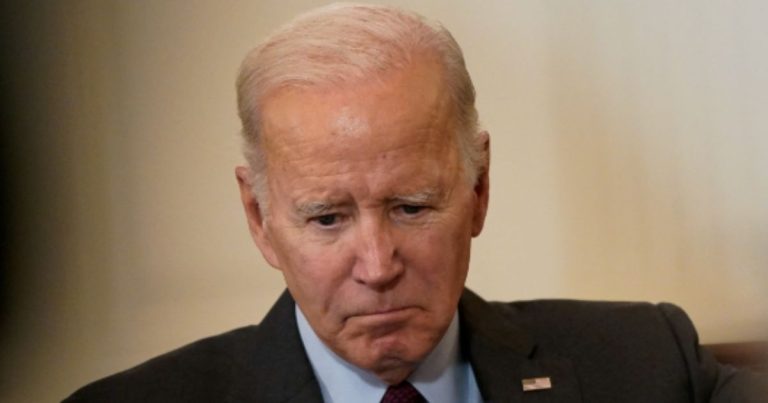
The pattern of executive power grabs through presidential orders has become all too familiar to American taxpayers. Here’s a question worth considering: When did we decide that presidential pens could replace congressional authority?
These attempts to circumvent proper legislative channels have cost hardworking Americans billions. But sometimes, the system of checks and balances works exactly as intended.
In a landmark decision that reinforces constitutional limits on executive authority, the U.S. 8th Circuit Court of Appeals has definitively ended former President Joe Biden’s attempted $500 billion student loan forgiveness scheme. And let’s be honest – anyone who believes in limited government saw this coming from miles away.
The court’s February 13 ruling delivered what analysts are calling the “final nail in the coffin” to Biden’s SAVE plan. This plan would have forced working Americans to shoulder the burden of others’ college debt through massive government spending.
Constitutional Victory for Limited Government
Missouri Attorney General Andrew Bailey, who led the successful legal challenge, celebrated the ruling as a triumph for constitutional governance. Finally, common sense prevails. Indeed, the court found that Biden’s education secretary had “gone well beyond this authority by designing a plan where loans are largely forgiven rather than repaid.”
“Though Joe Biden is out of office, this precedent is imperative to ensuring a President cannot force working Americans to foot the bill for someone else’s Ivy League debt,” Bailey said.
The decision follows multiple failed attempts by the former Biden administration to implement various versions of student loan forgiveness. This included blocks by the Supreme Court in both 2023 and 2024. Each attempt represented a different approach to the same unconstitutional goal: shifting private debt obligations onto public shoulders.
Let’s talk numbers. The magnitude of Biden’s attempted program – nearly $500 billion in taxpayer funds – would have represented one of the largest executive spending initiatives ever attempted without congressional approval. Think about that. Half a trillion dollars of your money, decided by one person’s signature. You truly can’t make this stuff up.
What about the millions of Americans who responsibly paid off their student loans? Or those who chose trade schools or went straight into the workforce? The former administration’s plan would have effectively penalized their responsible choices.
The White House had claimed the SAVE plan could lower borrowers’ monthly payments to zero dollars in many cases, while reducing costs by half for others. However, as any fiscally responsible American knows, there’s no such thing as “zero dollars” – someone always pays the bill.
Setting Critical Precedent
Perhaps most significantly, this month’s ruling establishes a crucial legal precedent that will protect taxpayers from similar overreach by future administrations. The court’s decision makes clear that the executive branch cannot unilaterally rewrite loan obligations on such a massive scale.
The ruling reinforces a basic principle of constitutional governance. This is that major decisions about public spending and debt forgiveness must go through Congress. There, representatives of the American people can properly debate and vote on such measures.
The Department of Justice, under the former administration’s direction, had previously attempted to circumvent lower court rulings by requesting emergency relief from the Supreme Court. These attempts were rejected, demonstrating the judiciary’s united front in protecting constitutional boundaries.
This victory for constitutional governance comes at a crucial time, as Americans face mounting concerns about government spending and executive overreach. The court’s ruling serves as a reminder that our system of checks and balances remains capable of stopping unconstitutional power grabs, even when they come wrapped in promises of debt relief.
Most importantly, this decision protects the fundamental fairness that forms the backbone of American society – the principle that individuals are responsible for their own financial choices and that the government cannot arbitrarily shift those obligations onto others without proper legislative authority.
As this chapter in the fight against executive overreach closes, the precedent set will serve as a powerful deterrent against future attempts to bypass constitutional limits on presidential power. For working Americans who play by the rules, pay their debts, and expect their government to do the same, this ruling represents a decisive victory for constitutional governance and fiscal responsibility.
Key Takeaways:
- Federal court permanently blocks unprecedented Biden’s $500B attempt to transfer student debt to taxpayers.
- The ruling creates powerful legal precedents preventing future presidents from similar overreach.
- Victory protects working Americans from paying for others’ college choices.
- Constitutional checks and balances prove effective in stopping executive power grabs.
Sources: Fox News